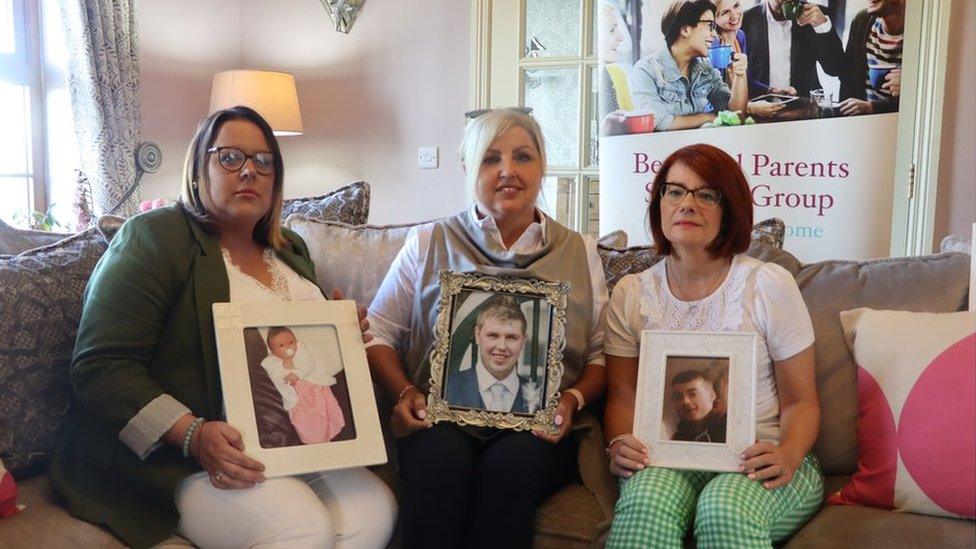Bereavement: Coleraine support group aims to improve people's lives
- Published
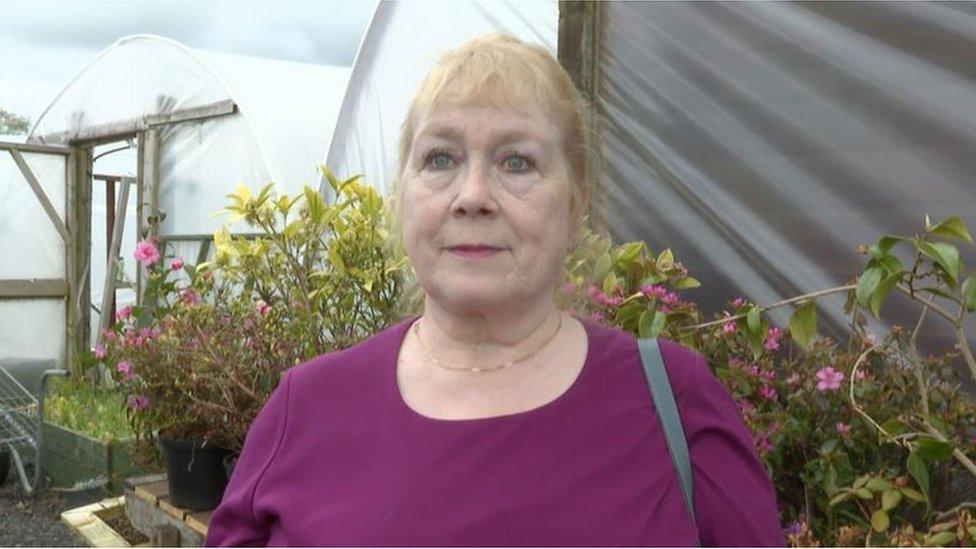
Lorna Mason said she has found being apart of the group very enjoyable
"When you lose someone things don't get easier like people say, things get different."
When Lorna Mason's husband died, she said she was left totally alone.
Lorna then joined a widows and widowers support group in Coleraine in County Londonderry and has described it as a lifesaver.
"You do meet new friends. You meet other people going through the same thing, it is very enjoyable" she told BBC News NI.
The team behind the project said it was helping to improve people's lives.
"Whenever you lose your significant partner, you can be at a loss. You lose confidence, you might not look after your own mental or physical health," social work assistant Cathy Watson said.
"Just being with other people who are in a similar situation can encourage you to get out and take up hobbies you had in the past or try new things."
Lead social worker Alex Larson said it was also helping to relieve pressures on GP practices.
"It's based on the concept that 60% of all GP presentations have a social underlying issue so we're here to try and address those issues," he said.
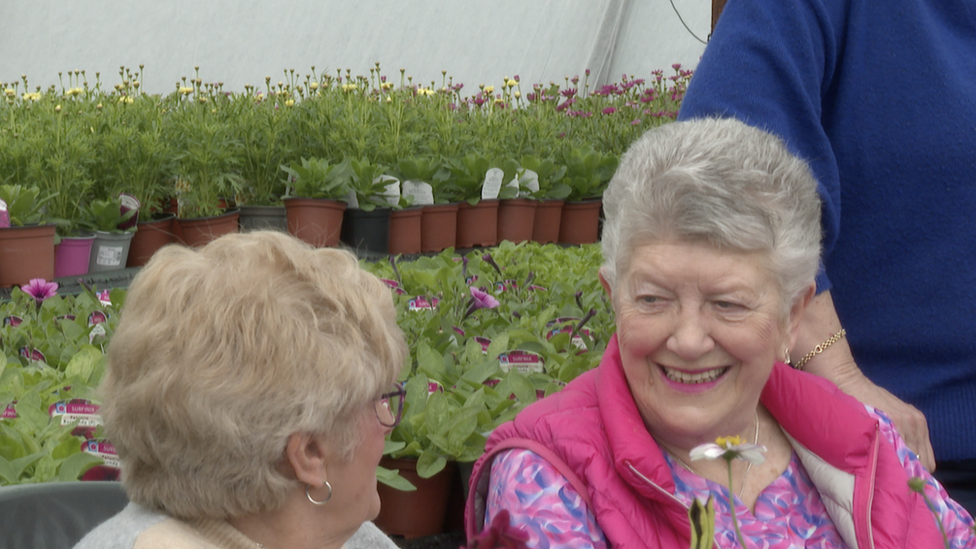
Up to 40 people are now apart of the bereavement support group which meets regularly
The social workers are among mental health practitioners and physiotherapists working as part of multi-disciplinary teams in surgeries in the Causeway GP federation.
"It's just not feasible to try and deliver services in the manner of which we traditionally have done," Mr Larson said.
"So, this is an alternative to that. This is about prevention, about getting services in early and trying to really avoid people needing those secondary, acute services."
Up to 40 people are now part of the bereavement support group which meets regularly.
Every fortnight they organise trips to a garden centre, cinema, bowling, walks or lunch.
Anna Kane from the Mountsandel area of Coleraine joined earlier this year.
"My husband died towards the end of January and the day after he died I just felt gutted," she said.
She said without the group she would have found it very difficult to get back to any kind of normality.
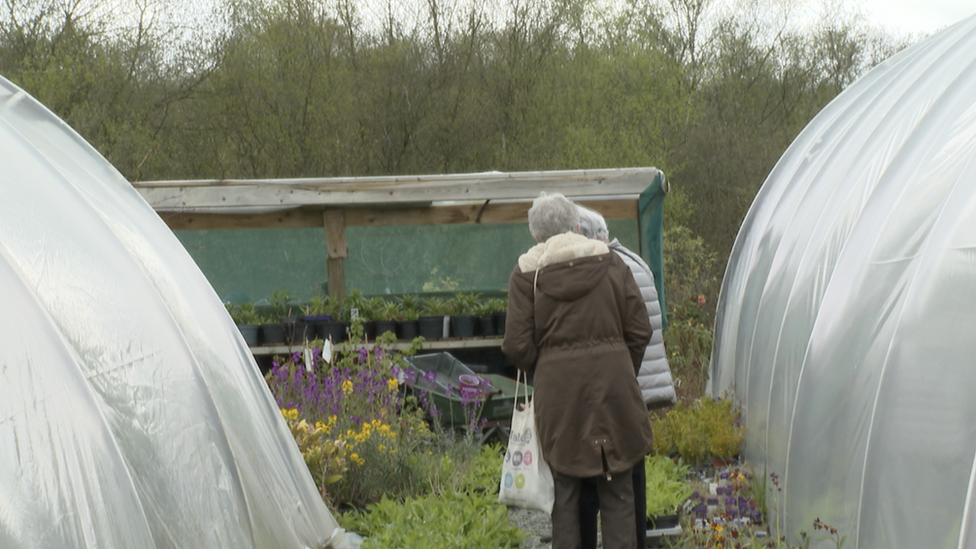
Every fortnight the group organises trips to places like a garden centre
Raymond McKeeman said he found life difficult after his wife died in February 2021.
"We can all talk to each other and we can all express how we feel and you generally find through that they are or have been feeling the same way," he said.
"It lifts you up because you're out among like-minded people.
"Whereas if you're sitting around the house on your own, your mind starts to wonder back to what has been."
Approximately 12 of the 18 GP practices within the Causeway GP federation have social workers within their multi-disciplinary teams.
Alex Larson hopes their work will be utilised more widely and in other trust areas in the future.
"If you think about that regionally, once MDT [multi-disciplinary teams] are rolled out everywhere, that is an awful lot of groups being developed so that we can step back and move on to the next group.
"In the longer term, this is going to have massive implications for actually trying to address those huge demographic changes we're all going to face in the next 15-20 years.
"I think it's really exciting."
Related topics
- Published29 April 2023
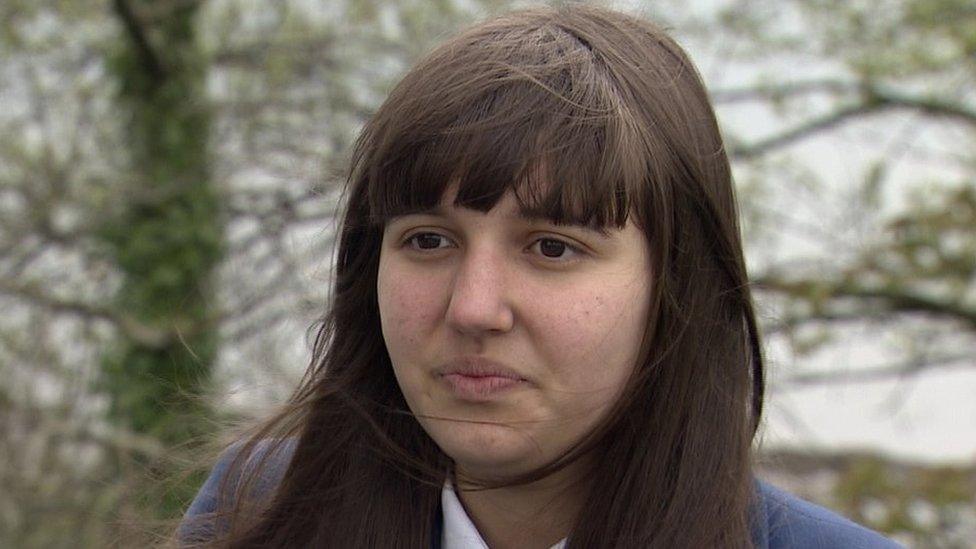
- Published6 October 2022
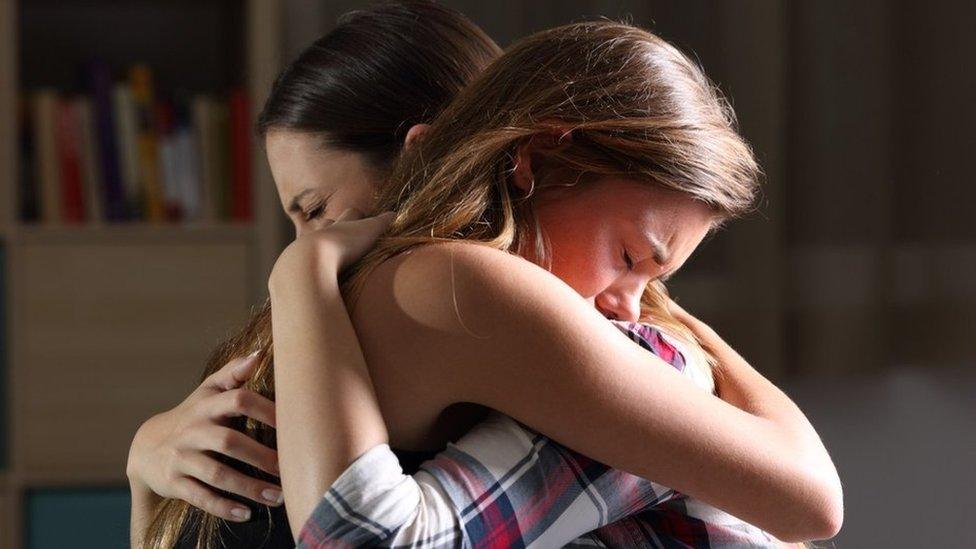
- Published19 August 2022
